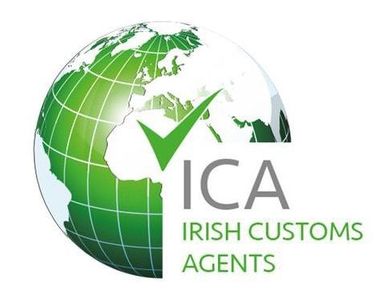Traces
To learn more about the entry documents that Irish Customs Agents helps clients with, contact us today.
TRACES
Here at Irish Customs Agents, we use TRACES, which is the Trades Control and Expert System, for certification of all sanitary and phytosanitary products. These products would be any goods that have plant products, animal products, or food products.
TRACES is used by the whole of the European Union for controlling both the import and the export of animals and animal products, as well as food and plant products, within and coming into its borders. The objective of TRACES is to streamline the certification process of official documents that are required for imports, exports, and intra EU movements of animal products, food products, and plant products.
The TRACES platform is instrumental in being able to trace where these products have been and contributes to the reduction of diseases and outbreaks.
CHED-D
The CHED-D is also known as the Common Health Entry Document for parcels which contain food and feed of a non-animal origin. These parcels and packages are subject to official controls upon entry into the European Union.
This document is issued by the people responsible for the consignment.
CHED-PP
The CHED-PP is the Common Health Entry Document for any consignments which include plants, plant products, and other objects which need a phytosanitary certificate.
This document is issued by those responsible for the parcel.
PHYTO
PHYTO is a phytosanitary certificate which has been put in place in the EU to help protect the territory from the spread of new pests and plant diseases. This is a way to reducing or eliminating any economic or environmental impact that these organisms could have. As well, this reduces the need for pesticides.
COI
COI, also known as a Certificate of Inspection, must accompany any and all consignments of organic products from countries outside the European Union. The main objective of the COI certificate is to be able to enhance the traceability of imported organic products, and thereby reduce potential fraud.
CHED-A
The CHED-A is the Common Health Entry Document for any parcel or consignment of animals.
This document is issued by those responsible for the consignment.
CHED-P
The CHED-P is the Common Health Entry Document for consignments and packages that contain products of animal origin, germinal products, or any animal by-products.
The CHED-P is issued by the operators who are responsible for the consignment.
IMPORT
The certificate for entry into the Union, also known as the Official Certificate to the EU, is used for all packages which contain animals, products of animal origin, composite products, germinal products, as well as animal by-products which have originated from non-European Union countries.
This has replaced the Veterinary Certificate to the EU.
CATCH
Currently, the EU has in place the catch certification scheme in order to prevent, deter and eliminate illegal, unreported and unregulated fishing. This system requires all imports of fish products to be accompanied by a catch certificate which validates the legality and traceability of the fish.
CATCH is aimed at digitalizing this certificate.
FLEGT
FLEGT stands for Forest Law Enforcement Governance and Trade, and is a system that provides a platform of reference for sharing of all FLEGT licences.
This platform is used amongst importers, competent authorities, and customs officers.
Frequently Asked Questions About TRACES
-
Who needs to use TRACES?
The EU law requires that all consignments of animals, food, animal products, and feed of non-animal origin, as well as the majority of plants, to be accompanied with official certificates. These certificates can be found on TRACES. If you are planning on exporting or importing these types of goods, then you will need to use TRACES.
-
What is TRACES used for?
TRACES stands for Trade Control and Expert System. It is a free, multilingual information tool which is managed by the European Commission to facilitate exchanges between operators and administrators of Member States in the EU.
